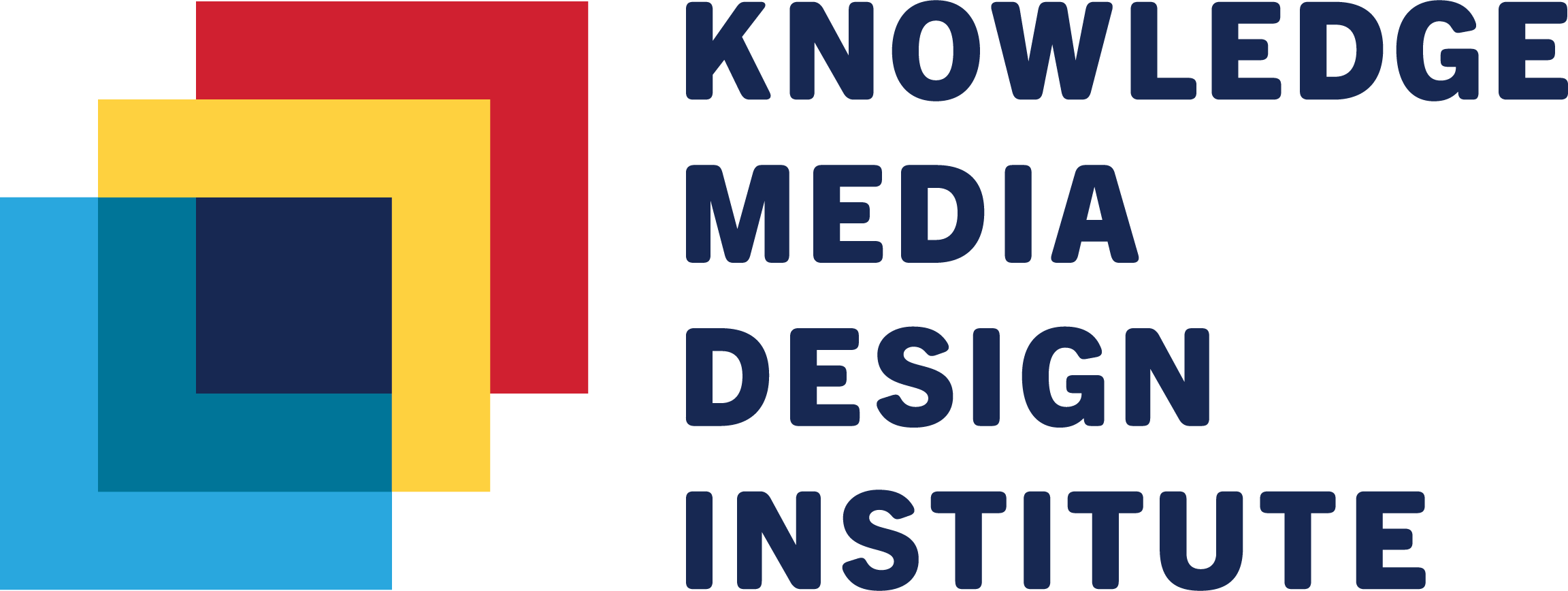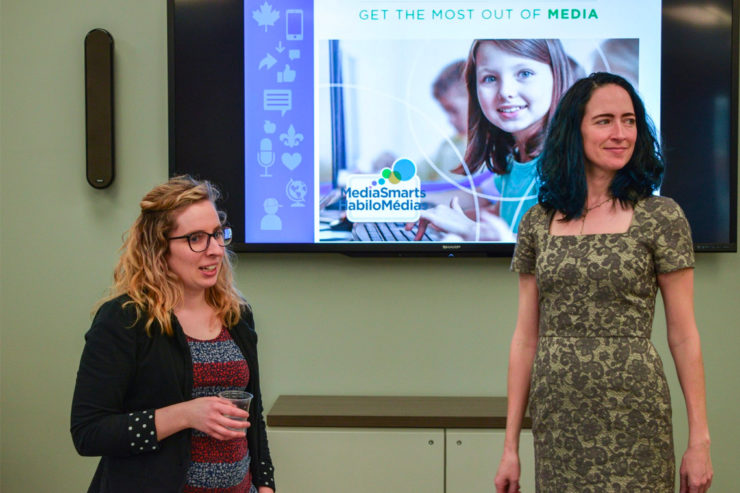Dr. Kara Brisson-Boivin, Director of Research at MediaSmarts and Adjunct Research Professor at Carleton University spoke about cultivating digital literary in Young Canadians as part of the KMDI-Semaphore Speaker Series. Her talk highlights how MediaSmarts is addressing emerging issues in society that are influenced by technology and information such as young Canadians use of the internet and the digital divide.
Dr. Brisson-Boivin highlighted MediaSmarts’ digital literacy framework and its importance in guiding her research and the work of MediaSmarts: “Teens and children embrace new technology and live in a digital culture where they have access to media everywhere and every time. But this masks a potential problem which is that, without effective support, they remain amateur users of this networked technology.” The result would be a “generation of youth who are not fully digitally literate, yet they are fully immersed in the digital society.”
For example, in the research we’ve done, some youth expressed a lack of understanding that SnapChats do not entirely go away after 24 hours. Youth need to understand what to share and what not to share, when to share it, and with whom/ what audiences.
MediaSmarts addresses this and other problems by conducting a research project and delivering a course covering digital literacy fundamentals (or ‘Digital Literacy 101) to teacher candidates across different faculties of education in Canada. This project has had a significant impact on K12 students thanks to the training teachers receive, in addition to the Digital Literacy 101 video series which expanded MediaSmarts audience and impact.
Dr. Brisson-Boivin presented the organization’s longest-running and most significant research project, Young Canadians in a Wired World (YCWW). YCWW is considered Canada’s most comprehensive and longest-running study of young Canadian’s attitudes and behaviour towards the Internet, spanning over 20 years, where data has been collected from more than 20,000 parents, teachers and students on issues concerning the Internet and online behaviour.
YCWW’s findings have influenced policy-making in Canadian schools and public libraries, as well as policies regarding the collection of children’s personal information and data online, and creating digital literacy education resources and programs. These findings also give parents the tools they need to support their children’s use of online media.
Dr. Brisson-Boivin shared an example of an evidenced-based tool developed by MediaSmarts called Impact that addresses online bullying, and Reality Check, a series of videos and online games, developed with Facebook Canada, that targets “tackling the various issues with misinformation online, especially on social media”.
Kara also spoke about managing the “digital divide” in Canada particular the inequalities faced by remote northern communities in Canada who do not have the same access to the internet or highspeed bandwidth. Resolving this issue is challenging because receiving grant funding for digital access is not yet seen as fundamental right, like access to healthcare and education.
MediaSmarts is dedicated to understanding the impacts of digital media literacy as a whole which in turn can help Canadians improve their lives and contribute to society as active, ethical digital citizens.
You can find more about MediaSmarts on www.mediasmarts.ca

